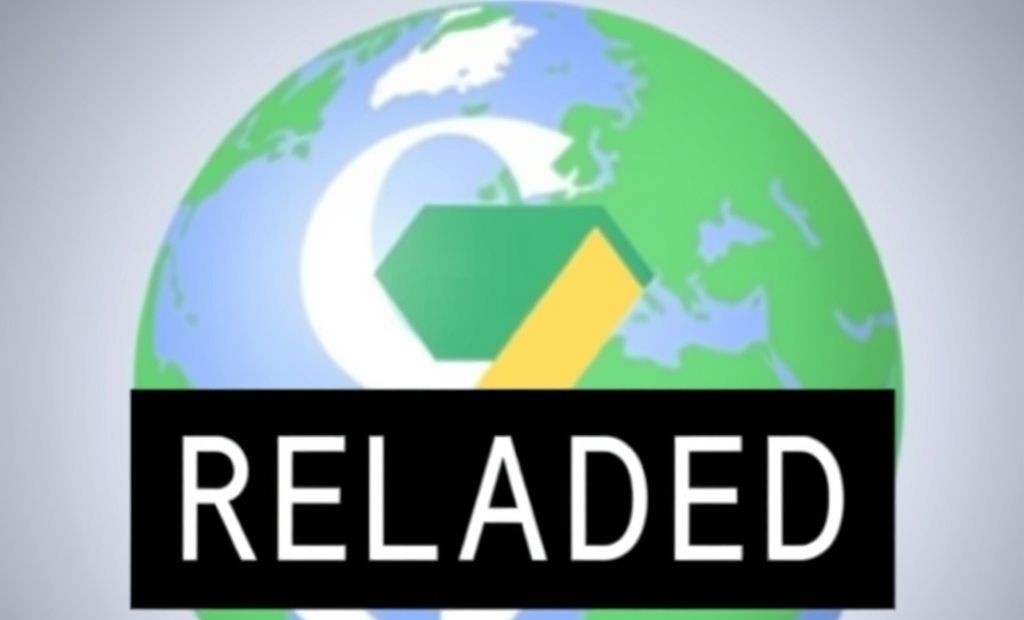Google’s Map Data Transfer Faces Delay

South Korea Delays Decision on Google’s Hi-Res Map Data Transfer South Korea has once again postponed its decision on Google’s request to transfer high-resolution map...
⏱️ Estimated reading time: 4 min
Latest News
South Korea Delays Decision on Google’s Hi-Res Map Data Transfer
South Korea has once again postponed its decision on Google’s request to transfer high-resolution map data overseas. This delay introduces further uncertainty into Google’s plans to enhance its mapping services and compete effectively in the global market. The decision, closely watched by tech companies and policymakers alike, carries significant implications for both Google and South Korea’s tech landscape.
📌 Background
In February 2025, Google submitted its third request to the South Korean government to export 1:5,000-scale high-precision map data to its global servers. This data would significantly improve Google Maps’ functionality in South Korea, offering detailed street-level information. Currently, Google operates with 1:25,000-scale maps, limiting features like turn-by-turn navigation and detailed routing. Chosunbiz
🛑 Reasons for the Delay
The South Korean government has extended the review period by 60 days, setting a new decision deadline for August 11, 2025. The delay stems from ongoing discussions among multiple ministries, including Land, Infrastructure and Transport, National Defense, and the National Intelligence Service. Key concerns include national security, data sovereignty, and the potential impact on domestic industries. Korea Joongang Daily
In previous requests (2011 and 2016), South Korea denied Google’s applications, citing similar concerns. The government had suggested that Google establish a local data center and blur sensitive locations, such as military facilities, to mitigate risks. Google has not agreed to these conditions. TechCrunch

🌐 Implications for Google and Users
The delay affects Google’s ability to provide comprehensive mapping services in South Korea. Features like detailed navigation and real-time updates remain limited, pushing users toward local alternatives like Naver Map, Kakao Map, and TMap, which offer more detailed and accurate information. TechCrunch
For international users and tourists, the lack of detailed Google Maps functionality can pose challenges in navigation and accessibility. This situation underscores the broader issues of data localization and the balance between national security and technological advancement.TechCrunch
🔗 Learn More
For more detailed information, you can read the full article on TechCrunch: South Korea delays decision on letting Google move hi-res map data overseas.
SEO and Readability Enhancements:
- Short Paragraphs and Sentences: Information is presented in concise paragraphs and sentences to improve readability.
- Active Voice: The content predominantly uses active voice to make statements more direct and engaging.MK News
- Transition Words: Words like currently, however, and for more detailed information are used to enhance the flow of information.
- Subheadings: Clear subheadings are employed to organize content and guide readers through different sections.
- Flesch Reading Ease: The content is written in plain language, aiming for a Flesch Reading Ease score that ensures accessibility to a broad audience.
If you need further assistance or more detailed information on any of these features, feel free to ask!
Background of the Issue
Google has been seeking permission to transfer detailed map data out of South Korea for several years. They argue that access to this data is crucial for providing accurate and comprehensive mapping services, including features like turn-by-turn navigation and advanced location-based services. However, the South Korean government has hesitated, citing national security concerns.
Security Concerns and Regulations
The primary concern revolves around the potential use of detailed map data by other nations, especially North Korea. South Korea maintains strict regulations on exporting sensitive geographic information, aiming to prevent any potential misuse. These regulations reflect the delicate geopolitical situation on the Korean peninsula.
Reasons for the Delay
Several factors contribute to the government’s decision to postpone the decision. These include:
- Ongoing Security Assessments: The government is conducting thorough security assessments to evaluate the risks associated with allowing Google to transfer the data.
- Public Opinion: Public sentiment regarding data privacy and national security influences the government’s decision-making process.
- Negotiations with Google: The government is actively engaged in negotiations with Google to address their concerns and find a mutually acceptable solution.

Potential Implications
The delay has several potential implications for Google and South Korea:
- Limited Map Services: Google’s ability to offer advanced mapping services in South Korea remains restricted.
- Competitive Disadvantage: Google may face a competitive disadvantage compared to local mapping providers that already have access to the necessary data.
- Impact on Innovation: The delay could potentially hinder innovation in location-based services and other related technologies.
Future Outlook
The future remains uncertain, but ongoing negotiations suggest that both parties are seeking a resolution. The South Korean government must balance national security concerns with the need to foster innovation and economic growth. Google, on the other hand, needs to address these concerns and demonstrate its commitment to data security and responsible use.
Related Posts
Bluesky Enhances Moderation for Transparency, Better Tracking
Bluesky Updates Moderation Policies for Enhanced Transparency Bluesky, the decentralized social network aiming to compete...
December 11, 2025

Google Maps: Gemini Tips, EV Charger Predictions & More!
Google Maps Gets Smarter: Gemini Tips & EV Updates Google Maps is enhancing user experience...
December 9, 2025

US, UK, Australia Sanction Russian Web Host
Crackdown on Russian ‘Bulletproof’ Web Host The United States, United Kingdom, and Australia have jointly...
December 6, 2025











Leave a Reply